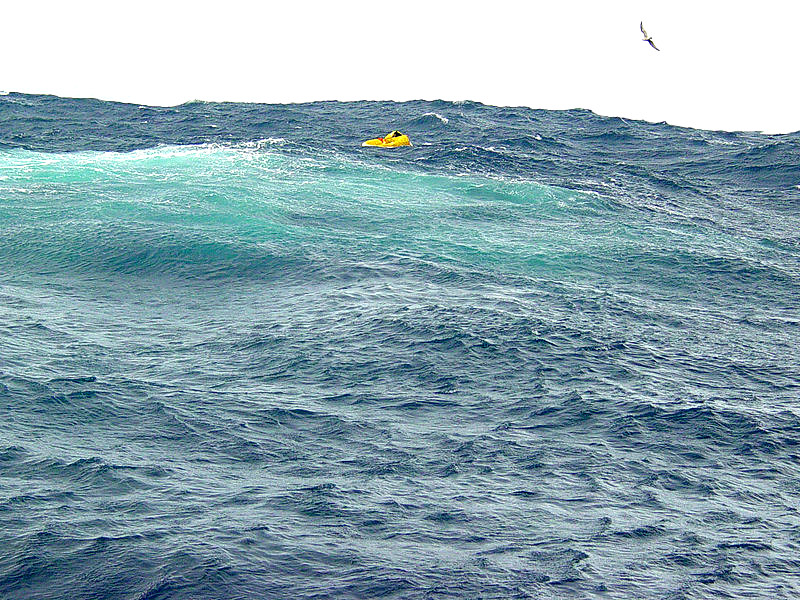
When we view J. C. Chandler’s “All is Lost” starring Robert Redford as a parallel to the journey of authentic manhood we discover some interesting things. This is a survival story. In any survival story, characters are forced to deal with what really matters most. Perhaps a character does not know what matters most, but the intensity of their survival situation brings those issues to the surface and amplifies them. If a character has any realizations during the struggle for survival, it changes them and they carry the realizations with them afterward, even after rescue.
For those of you who have not yet seen the film, please be warned that this article contains spoilers. “All is Lost” is about a man sailing in the Indian Ocean, although we are never told why he is doing so. We know that he has someone, or some ones, who are are important to him because he writes a letter to a mysterious “you,” a letter which he encloses in a glass jar and drops into the sea when he eventually comes to the realization that “all is lost.”
Survival stories like “All is Lost” are extremely useful for those of us on the journey of authentic manhood because they allow us to encounter the issues that might arise in a survival situation and journey with a character toward their own realizations and conclusions without actually going through the ordeal ourselves. One might argue that this is something that gives value to the art of fiction in general but that is a subject for elsewhere.
Hope typically plays a large role in survival stories. Characters must wrestle with the reason to survive, not just the challenges of survival itself. “All is Lost” fits this survival story model and Redford’s character must eventually wrestle with his reason to survive. He must decide whether or not the hope for rescue is worth all his struggle for survival.
In the film, Redford’s character must overcome each challenge that is thrown at him, he must adapt and problem solve, which takes up the majority of his time and energy. It also takes up the majority of screen time. This creates a dramatic realism because one would imagine that in a real survival situation the majority of one’s time would be spent solving problems and dealing with the unique challenges of the situation.
Hope, however, shows up for Redford’s character as his hope for rescue. Any time he is trying to get his radio to work, signaling with flares, or charting his progress on his maps, hope for rescue is in operation. For example, he figures out that he must get into the shipping lane for a chance to be seen by a freighter. The hope of being seen by a ship creates the drive to continue to stay alive, to solve the problems that arise. Therefore, when he is not seen by the freighters despite his flares and yelling, it is a blow to his hope. And when the current takes him out the shipping lane, his hope suffers all the more.
Hope is his reason to survive. Without it, why continue to deal with these things? This becomes his new struggle. It is no longer just about how to adapt and survive his situation, it is about whether or not it is worth doing so. After he is taken out of the shipping lane, hope seems lost. Redford’s character comes to this conclusion. He writes a letter to his loved ones (whomever this is) explaining that “all is lost” and that he is sorry. What is lost? Hope is lost. Perhaps, he is not thinking about suicide at the time he writes the letter. But once he has concluded that hope is gone, it is futile to try and survive.
This character’s realization and conclusion is interesting. We can draw the conclusion that losing hope destroys our will to continue our journey. Therefore, hope is vital for survival in every context, not just actual survival situations. As believers in Jesus, we have the assurance that we are never left hopeless. We have a God who loves us and is with us helping us in our journey through this life, and our hope extends into a life beyond this life. That is our advantage. God is always with us and our hope in him drives us to continue our journey of authentic manhood.
The interesting thing about the character’s realization in “All is Lost” is that he winds up being wrong about it. All does appear to be lost, he is out of the shipping lane, running out of resources, and has no plan or hope for rescue. But he still ends up being rescued by an unlikely source, a small boat that happens upon him. He had given up, but unlikely as it seemed, all was not lost after all. This is a good reminder for us. Although we may be in the bleakest of situations and it seems that hope is gone, rescue may come in a way that we could not have foreseen. For the believer, hope is never lost.

